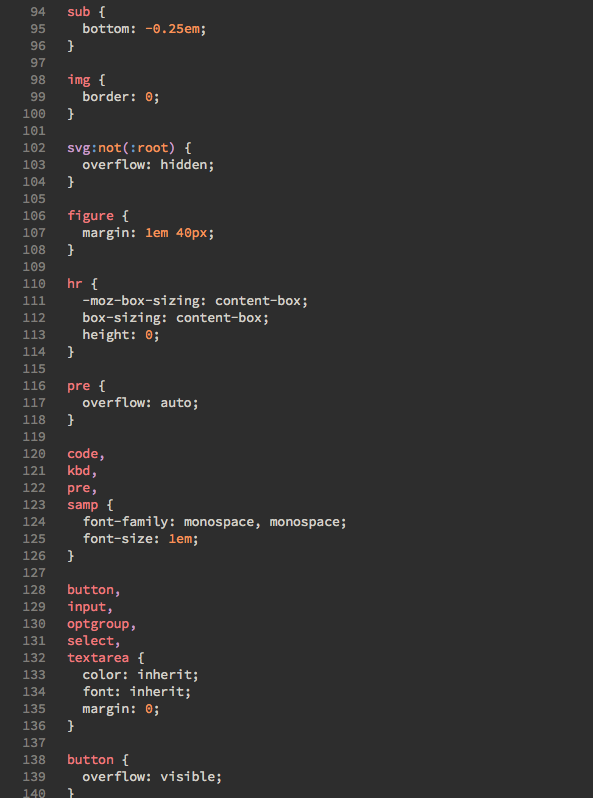Syntactically Awesome Stylesheets

What is Sass?
-
Sass is a mature, stable and powerful CSS pre-processor
-
Pre-processors extends CSS with additional features
-
Sass compiles to a standard compliant CSS,
as well as optional source maps. -
It has been around since 2006
-
Sass was originally written in Ruby but the original project
came to its end-of-life as in March 2019. -
Wrappers have been written in C, Node.js, Java, .NET, PHP, Python, and others.

Why use Sass?
CSS stylesheets are becoming larger, more complex and difficult to maintain. This is where a preprocessor can help. Sass lets you use features that don't exist in CSS yet like variables, nesting, mixins, operations and inheritance.


Extending CSS3
Sass is an extension of CSS3, adding nested rules, variables, mixins, selector inheritance, operators, directives and partials. As a superset of CSS3, valid CSS is always valid Sass


.box {
color: blue;
a {
color: green;
}
&:hover, &:focus {
background-color: #fff;
}
}scss
.box{
color: blue;
}
.box a {
color: green;
}
.box:hover,
.box:focus {
background-color: #fff;
}css
Nesting
selectors
Nesting

.box{
& + & {
margin-top: 10px;
}
&.additional-class {
margin-top: 20px;
}
@media screen and (min-width: 480px) {
padding: 30px;
}
}scss
.box + .box {
margin-top: 10px;
}
.box.additional-class {
margin-top: 20px;
}
@media screen and (min-width: 480px) {
.box{
padding: 30px;
}
}css
Media Queries
Nesting

.box{
margin: {
top: 5px;
bottom: 12px;
};
border: {
width: 1px;
style: solid;
color: green;
};
}scss
.box{
margin-top: 5px;
margin-bottom: 12px;
border-width: 1px;
border-style: solid;
border-color: green;
}css
Properties
Variables

$text-size: 10px;
$line-height: 1.4;
$font: Arial, Helvetica, sans-serif;
$color: #000;
.h1 {
$text-size: 20px; //local variable
color: $color;
font: 400 $text-size/$line-height $font;
}scss
.h1 {
color: #000;
font: 400 14.28571px Arial, Helvetica, sans-serif;
}css
Variables

$color-green: green;
.header {
background: $color-green;
}
.footer {
background: $color-green;
}scss
.header {
background: green;
}
.footer {
background: green;
}css
Scope
Variables are only available within the level of nested selectors where they’re defined. If they’re defined outside of any nested selectors, they’re available everywhere.
Variables

// Quoted strings
$font-family: "Lucida Grande";
// Unquoted strings
$font-family-alt: sans-serif;
// Numbers
$big-number: 1000;
$small-number: 1.2;
$font-number: 24px;
// Colors
$color-blue: blue;
$color-grey: rgba(0,0,0,0.5);
$color-real-great: #04a3f9;
// Booleans
$on-sale: false;
// Lists
$large-margin: 1.5em 1em 0 2em;
$great-fonts: Helvetica, Arial, sans-serif;
// Maps
$default-settings: (key1: value1, key2: value2);scss
Data Types
Supported data types include: quoted / unquoted strings, numbers, colors, booleans, lists and maps.
Variables

$text-size: 16px;
$line-height: 1.4;
.box {
font-size: ($text-size + 6) / 2;
line-height: ceil(3.4);
line-height: floor(3.4);
line-height: round(1.67);
}scss
.box {
font-size: 12px;
line-height: 4;
line-height: 3;
line-height: 2;
}css
Math Operations
Color functions

p {
color: hsl(0, 100%, 50%);
}
h2 {
color: lighten($color-blue, 20%);
}
h3 {
color: darken($color-blue, 60%);
}scss
Import Partials

// app.scss
@import "variables";
@import "mixins";
@import "global";
@import "any_stylesheet";
// variables.scss
$color: #222;
// global.scss
.class {
color: $color;
}scss
Extending

.class_1 {
color: #000;
}
.class_2 {
@extend .class_1;
background: #fff;
}scss
.class_1, .class_2 {
color: #000;
}
.class_2 {
background: #fff;
}css
Extending

.class_1 {
color: #000;
&:hover {
color: blue;
}
}
.class_2 {
@extend .class_1;
background: #fff;
}scss
.class_1, .class_2 {
color: #000;
}
.class_1:hover, .class_2:hover {
color: blue;
}
.class_2 {
background: #fff;
}css
@mixins

@mixin very-nice-border($color, $width: 100px) {
border: {
color: $color;
width: $width;
style: dashed;
}
}
.panel{
@include very-nice-border(green)
}
scss
.panel{
border-color: green;
border-width: 100px;
border-style: dashed;
}
css
@mixins

@mixin border {
border-radius: 4px;
border: 1px solid #eee;
& .btn{
border-color: blue;
}
}
.notice {
@include border;
}scss
.notice {
border-radius: 4px;
border: 1px solid #eee;
}
.notice .btn{
border-color: blue;
}css
Functions

$grid-width: 40px;
$gutter-width: 10px;
@function grid-width($n) {
@return $n * $grid-width + ($n - 1) * $gutter-width;
}
#sidebar { width: grid-width(5); }scss
#sidebar {
width: 240px;
}css
Benchmark

Processing time for 200KB file of plain CSS:
-
Sass: 4.9s
-
Sass (with cache): 2.5s
-
Stylus: 1.7s
-
LESS: 0.5s
-
libsass: 0.2s
Ways to use Sass

Apps:
Online:
Build tools:
sass
By Yariv Gilad
sass
- 2,277



